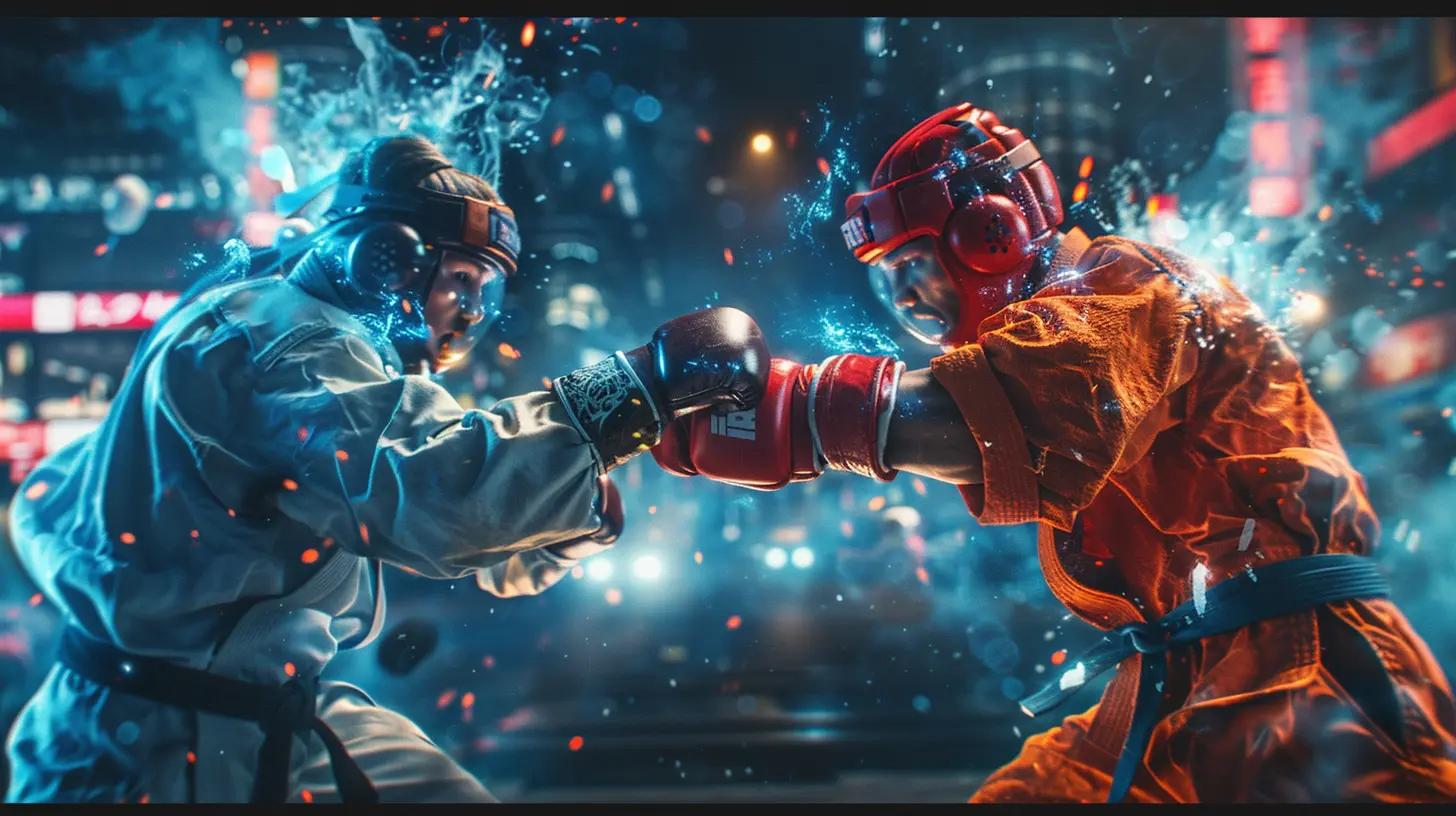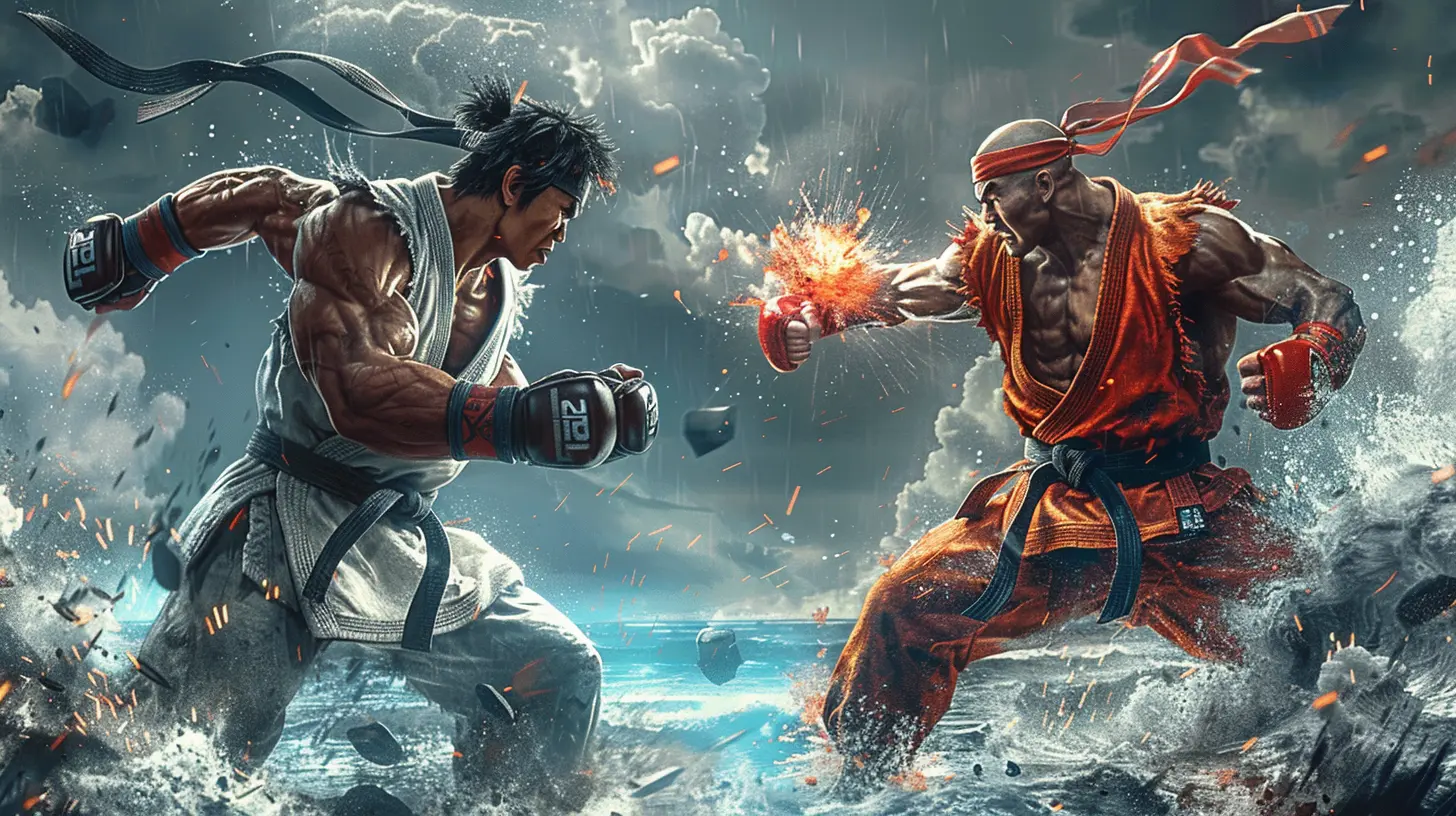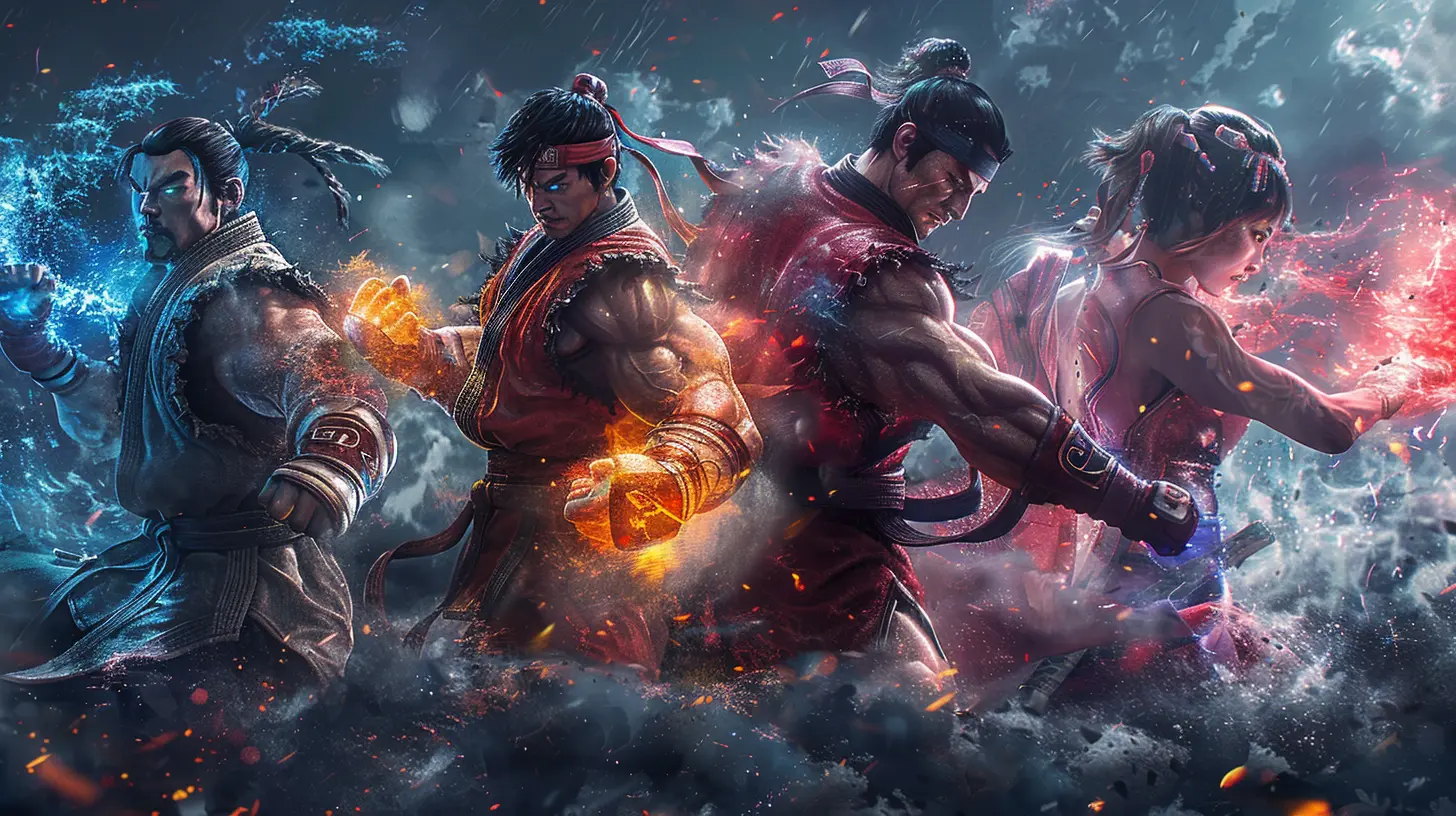4 April 2025
If video games were superheroes, fighting games would undoubtedly be the scrappy underdog who punches above their weight class. These games are fast, fierce, and unapologetically chaotic. They've been around long before esports became a thing, back when the only "tournaments" were the ones held by that one kid in your neighborhood with a console and too much free time. But somehow, these pixelated punch-fests became the cornerstone of the competitive gaming scene. How? Well, sit back, grab a snack (preferably something crunchy for dramatic effect), and let’s dive into the colorful, trash-talking world of fighting games and their impact on esports. 
A Brief History: Where It All Began
Before esports was an industry worth billions, before sponsorships and Twitch streams, there were arcades. You remember them, right? Those dimly lit havens of neon and sticky floor tiles, where kids gathered to spend their quarters and vent their frustrations one Hadouken at a time. It’s here where the seeds of competitive gaming were sown.Games like Street Fighter II and Mortal Kombat weren’t just entertainment; they were battlegrounds. Players would line up behind the arcade machine, quarters lined up like soldiers, waiting to face off against the reigning champion. Winning meant earning bragging rights, which is basically esports’ ancestor if you think about it.
And let’s not forget the trash talk. Oh, the trash talk. The playful insults, the dramatic "Oh, you’re going down!" moments—it was all part of the experience. If you’ve ever watched a heated esports match, you’ll recognize that the spirit of arcade rivalries is alive and well. 
Mechanics That Separates Fighters From The Pack
What makes fighting games such a perfect fit for competitive esports? It’s all about the mechanics. Think of them like the rules of a sport, but with less grass and more uppercuts. Fighting games are typically one-on-one, meaning there’s no blaming your teammates for a loss (we’re looking at you, FPS players).These games are also ridiculously skill-intensive. They demand lightning-fast reflexes, split-second decision-making, and the ability to memorize combos that are longer than your grocery list. Seriously, ever seen a pro pull off a Tekken combo? It's like watching someone type out a novel in Morse code.
Each fighting game has its own unique flavor, whether it’s the cartoonish chaos of Super Smash Bros. or the brutal fatalities of Mortal Kombat. This variety keeps things fresh and ensures there’s always something for every type of player—and spectator. 
Fighting Games Vs. Team Esports: Why They’re Different
Let’s address the elephant in the room: fighting games aren’t the “mainstream darling” of esports. They don’t rake in the viewers like League of Legends or CS:GO. But you know what? That’s okay. Fighting games are the indie rock band of esports. Their loyal fanbase shows up, rain or shine, and the intensity of a fighting game tournament is unmatched.Unlike team-based games, fighting games are intensely personal. It’s just you and your opponent, staring each other down through the screen. Every move you make is your own. There’s no “carry” to rely on, no healer to bail you out. If you lose, it’s because the other player outsmarted or outplayed you. It’s raw, it’s real, and let’s be honest—it’s a little terrifying. 
Iconic Fighting Game Tournaments
Speaking of tournaments, fighting games have played a huge role in popularizing competitive gaming events. Ever heard of EVO (Evolution Championship Series)? If not, let me blow your mind. EVO is basically the Super Bowl of fighting games. It’s where legends are born, rivalries are cemented, and commentators lose their minds over insane comebacks.One of the most famous moments in esports history happened at EVO 2004. If you’re a fighting game fan, you already know where I’m going with this—Daigo Umehara versus Justin Wong, also known as “EVO Moment #37.” Without getting too technical, Daigo parried 15 consecutive hits from Wong, then counterattacked to win the match. It’s the kind of thing that makes your jaw drop, even if you don’t fully understand what just happened.
Fighting games also thrive in smaller, grassroots tournaments. These events often have quirky names, tight-knit communities, and a vibe that screams, “We’re here to have a good time, and maybe throw a few fireballs.”
The Rise of Content Creators and Fighting Game Culture
Fighting game culture isn’t just limited to tournaments. Content creators have played a massive role in expanding the scene. Whether it’s YouTube guides on mastering Ryu, Twitch streams of epic matches, or meme-worthy commentary videos, fighting games live and breathe on community interaction.Part of the charm is how accessible these games are. Sure, it takes time to master them, but anyone can pick up a controller and throw a punch (even if it’s just spamming buttons like a caffeinated toddler). This makes them the perfect gateway into esports for newcomers.
Oh, and let’s not overlook the memes. Fighting games are a goldmine of internet humor. From “Finish Him!” to “Is that all you’ve got?”, these iconic lines have become part of pop culture. They add a layer of fun that keeps the community engaged and keeps esports a little less... serious.
Challenges Facing Fighting Games in Esports
Okay, so fighting games are awesome. But let’s keep it real—they’ve got their challenges. For starters, they don’t have the massive prize pools that team-based games do. It’s hard to compete with the gazillion-dollar tournaments hosted by games like Dota 2.There’s also the issue of accessibility. While anyone can start playing, getting to a competitive level requires a level of dedication that scares off casual players. It’s like deciding to run a marathon after barely surviving a jog around the block.
And let’s not forget the constant debate about balancing. Developers are in a never-ending battle to tweak and adjust characters to ensure fairness. No one likes a game dominated by a single overpowered character (cough Meta Knight cough).
Fighting Games’ Contribution to Esports As A Whole
Despite the challenges, fighting games have made an undeniable mark on esports. They were among the first to bring competitive gaming to the masses, setting the stage for everything that came after. The focus on skill, strategy, and mind games in fighting matches has influenced other esports genres and even shaped how games are designed.They’ve also taught us one very important lesson: esports is for everyone. Whether you’re a button-masher or a combo master, there’s a place for you in the fighting game community. And honestly, that’s what gaming is all about.
Looking to the Future
So, what’s next? Fighting games aren’t going anywhere, that’s for sure. With new titles and updates coming out regularly, the scene is constantly evolving. Add to that the rise of online tournaments (thanks, better internet!) and the increasing appeal of retro games, and you’ve got a recipe for a thriving future.While fighting games might never dominate esports the way team games do, they’ve carved out a unique space that no other genre can fill. They’re the scrappy, punchy heart of competitive gaming, and we wouldn’t have it any other way.
Final Thoughts
Fighting games are the lifeblood of competitive esports. From their humble arcade beginnings to the bright lights of EVO, they’ve shown us that skill, passion, and a well-timed uppercut can change the game—literally. Whether you’re a spectator or a player, there’s something magnetic about the world of fighting games. And while they might not have the glitz and glam of other genres, they’ve got soul—and a mean right hook.So next time someone asks, “Why do people still play fighting games?” you can just smile, shrug, and reply, “Because they’re awesome, duh.


